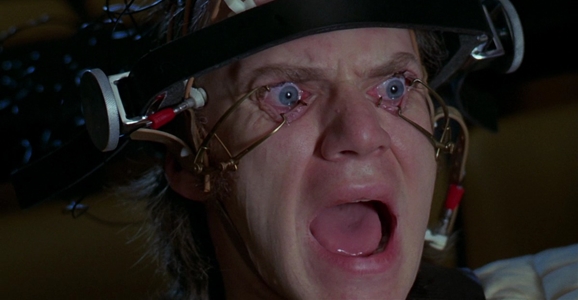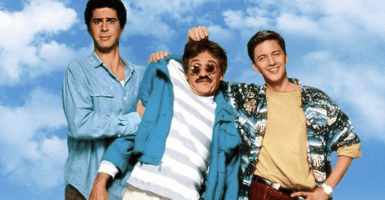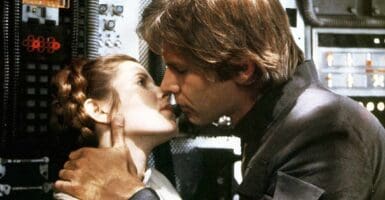Close But No Cigar: Science Fiction’s Best Picture Nominations — And Losses
And now we can add Gravity and Her to the list.
This article is more than 2 years old
 A Clockwork Orange (1971)
A Clockwork Orange (1971)
In 1971, Stanley Kubrick released his follow up to 2001: A Space Odyssey with the violent, dystopian classic A Clockwork Orange. Adapted from Anthony Burgess’ best-selling novel, Kubrick challenged audiences with notions of redemption, crime, sex, and government control.
Considered one of the auteur’s best films, A Clockwork Orange earned Kubrick his third straight Academy Award nomination for Best Director, and his second for Best Picture (Dr. Strangelove or: How I Learned to Stop Worrying and Love the Bomb was nominated for the 37th Academy Awards). The film that ended up winning Best Picture during the 44th Academy Awards in 1972 was William Friedkin’s The French Connection, while Friedkin also won for Best Director over the master film director.
Looking back at the films nominated for Best Picture, many argue that A Clockwork Orange was the superior film. Kubrick’s bleak tale pushed audiences to re-consider societal norms and the art of movie-making altogether. Today, A Clockwork Orange would have a slight edge over The French Connection, just in terms of popularity and legacy.
A Clockwork Orange was also nominated for Best Adapted Screenplay and Best Film Editing, but lost out to The French Connection in both categories. Stanley Kubrick never won an Academy Award for Best Director, but he was later nominated for his 1975 film Barry Lyndon and, arguably, A Clockwork Orange was his best chance at a Best Picture and Best Director Oscar. As it stands, Stanley Kubrick only earned one Academy Award in his lifetime: Best Visual Effects for 2001: A Space Odyssey. – Rudie
Pages [ 1 2 3 4 5 6 7 ]












